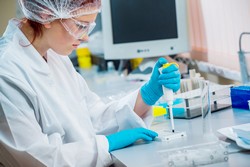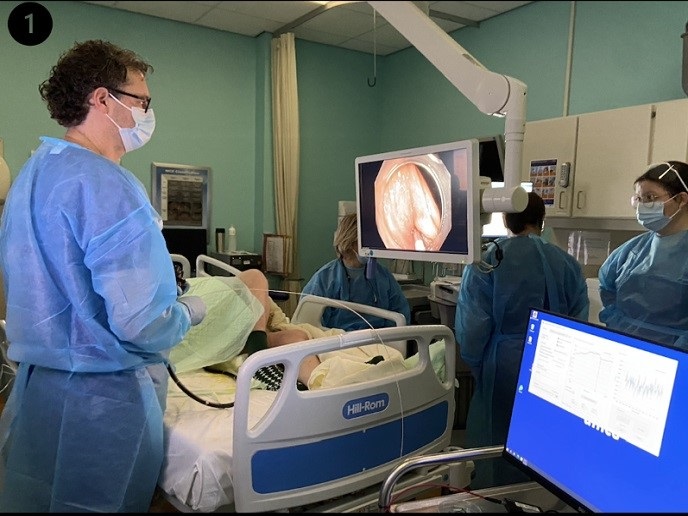Anti-cancer targeting of a novel class of receptors
Dependence receptors (DR) are not inactive in the absence of their respective ligands but actively trigger apoptosis. They are expressed at the cell surface and cause cells to be dependent on ligand availability. In various human cancers, netrin-1 is expressed in an autocrine fashion and blocks the apoptosis caused by the DCC and UNC5H DRs. Emerging evidence indicates that interfering with netrin-1 binding reversely affects tumour growth and metastasis in various animal models of cancer. As a result, DRs seem to act as negative regulators of tumour progression and could be used in a therapeutic context. The EU-funded study HERMIONE-2MAN (First in man novel anticancer therapeutic based on dependence receptors concept) continued the work of its predecessor FP6 project HERMIONE on antibodies that block the interaction between netrin-1 and UNC5B. Following structure optimisation and production, the monoclonal antibody was evaluated with respect to pharmacodynamics and pharmacology. To deliver the antibody according to clinical standards, the consortium utilised two appropriate technologies. In addition, researchers were able to show through structural analysis that this antibody binds to the V-2 domain of netrin-1, which is the region that interacts with UNC5B. Subsequently, the antibody was tested in various animal models for anti-tumour efficacy either in monotherapy or in combination with conventional treatments. Results showed that it could control cancer cell stemness by blocking the netrin-1-dependent cross-talk between tumour cells and their supporting microenvironment. This finding supports other studies that demonstrate the role of the netrin-1 pathway as a key modulator of normal stem cell pluripotency and reprogramming. Furthermore, cytotoxicity studies in mice and cynomolgus monkeys showed a half-life of 9-11 days with no adverse toxic effects. This clearly demonstrated the potential of the antibody to be used clinically in a phase I trial. Given that netrin-1 is upregulated in the commonest forms of cancer, the therapeutic targeting of netrin-1 will have significant impact on cancer treatment.







